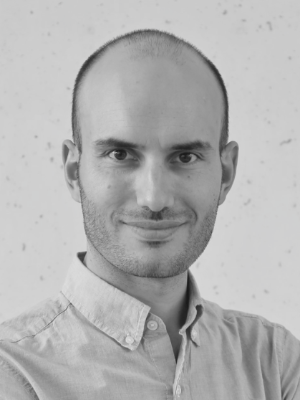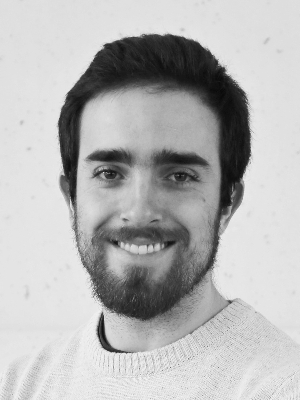
Modulation of adult brain cytogenesis for treatment of neuropsychiatric and neurodegenerative diseases
The adult mammalian brain harbors different forms of neural plasticity, ranging from neuronal synapto-dendritic rearrangements to the generation of new neuronal and glial cells from neural stem cells along the post-natal period, a process known as neuro- and gliogenesis, respectively. These forms of adult plasticity are of pivotal importance to cognitive and emotional components of adult behavior, both in healthy and pathological contexts. This has been paradigmatically demonstrated in the context of neuropsychiatric disorders, such as depression.
Depression is estimated to affect around 16% of the world population and is the leading cause of disability worldwide. Strykingly, depressive symptoms are also common in patients with neurodegenerative diseases, such as Parkinson and Alzheimer Disease, having impact on many clinical aspects of the disease.
Understanding the pathogenesis of depression has benefited from the growing acceptance of the potential role of adult brain plasticity. Recent work from my lab demonstrated that adult hippocampal cytogenesis is profoundly compromised in a stress-induced animal model of depression, a phenomenon that can be reversed by antidepressants. The aim of this project is to unveil how hippocampal adult-born cells, namely neurons and astrocytes, control neuroplasticity, neurophysiology and complex behaviors in health and depression. Complemented by other state-of-the-art techniques (e.g. single-cell sequencing, optogenetics, neuroimaging), this will allow fine dissection of the relevance of these cells in the remodeling and functioning of neuroglial networks for behavioral control.
Funding Agency
FCT; Nature Research Awards; Bial Foundation
Project Reference




Project Members


Ioannis Sotiropoulos

João Bessa

João Oliveira

Nuno Sousa

Nuno Dinis Alves

Andreia Vaz

Tiago Silveira-Rosa

Gonçalo Ferreira
Main Project Outcomes
S. Queirós, “Right ventricular segmentation in multi-view cardiac MRI using a unified U-net model”, in E. Puyol Antón et al. (eds) Statistical Atlases and Computational Models of the Heart. Multi-Disease, Multi-View, and Multi-Center Right Ventricular Segmentation in Cardiac MRI Challenge. STACOM 2021. Lecture Notes in Computer Science, vol 13131, pp. 287-295, Springer, Cham, 2022.
“Best Paper Award in the M&Ms-2 Challenge”, by M&Ms2 Challenge organizers and the Medical Image Computing and Computer Assisted Intervention (MICCAI) Society.
Main Project Outcomes
1. Silveira-Rosa, T., Mateus-Pinheiro, A., Correia, J.S., Silva, J.M., Martins-Macedo, J., Araújo, B., Machado-Santos, A.R., Alves, N.D., Silva, M., Loureiro-Campos, E., Sotiropoulos, I., Bessa, J.M., Rodrigues, A.J., Sousa, N., Patrício, P.* and Pinto, L.* (2022). Suppression of adult cytogenesis in the rat brain leads to sex-differentiated disruption of the HPA axis activity. Cell Proliferation, Feb;55(2):e13165.
2. Machado-Santos, A.R., Loureiro-Campos, E., Patrício, P., Araújo, B., Alves, N.D., Mateus-Pinheiro, A., Correia, J.S., Morais, M., Bessa, J.M., Sousa, N., Rodrigues, A.J., Oliveira, J.F.* and Pinto. L* (2022). Beyond New Neurons in the Adult Hippocampus: Imipramine Acts as a Pro-Astrogliogenic Factor and Rescues Cognitive Impairments Induced by Stress Exposure. Cells, 11, 390.
3. Loureiro-Campos, E., Mateus-Pinheiro, A., Patrício, P., Soares-Cunha, C., Silva. J., Sardinha, V.M., Mendes-Pinheiro, B., Silveira-Rosa, T., Domingues, A.V., Rodrigues, A.J., Oliveira, J.F., Sousa, N., Alves, N.D.* and Pinto, L.* (2021). Constitutive AP2gamma deficiency reduces postnatal hippocampal neurogenesis, inducing anxious-like phenotype and memory impairments in juvenile mice that either persist or emerge during adulthood. eLife, 10:e70685
4. Mateus-Pinheiro, A., Patrício, P., Alves, N.D., Martins-Macedo, J., Caetano, I., Silveira-Rosa, T., Araújo, B., Mateus-Pinheiro, M., Silva-Correia, J., Sardinha, V.M., Loureiro-Campos, E., Rodrigues, A.J., Oliveira, J.F., Bessa, J.M., Sousa, N., Pinto, L.* (2021). Hippocampal cytogenesis abrogation impairs inter-regional communication between the hippocampus and prefrontal cortex and promotes the time-dependent manifestation of emotional and cognitive deficits. Molecular Psychiatry, Dec 26(12): 7154–66.
5 . Martins-Macedo, J., Salgado, A.J., Gomes, E.D.*, Pinto, L.* (2021). Adult Brain Cytogenesis in the Context of Mood Disorders: from Neurogenesis to the Emergent Role of Gliogenesis. Neuroscience & Biobehavioral Reviews, Dec;131:411-428.
6. Machado-Santos, A. R.#, Alves, N.D.#, Araújo, B., Correia, J.S., Patrício, P., Mateus-Pinheiro, A., Loureiro-Campos, E., Bessa, J.M., Sousa, N., Pinto, L.* (2021). Astrocytic plasticity at the dorsal dentate gyrus on an animal model of recurrent depression. Neuroscience. Feb 1;454:94-104
7. Alves, N.D., Patrício, P., Correia, J.S., Mateus-Pinheiro, A., Machado-Santos, A.R., Loureiro-Campos, E., Morais, M., Bessa, J.M., Sousa, N., and Pinto, L.* (2018). Chronic stress targets adult neurogenesis preferentially in the suprapyramidal blade of the rat dorsal dentate gyrus. Brain Struct & Funct. Jan 223(1):415-428.
8. Mateus-Pinheiro, A., Alves, N.D., Patricio, P., Machado-Santos, A.R., Campos, E., Silva, J., Sardinha, V., Reis, J., Schorle, H., Oliveira, J.F., Ninkovic, J., Sousa, N., and Pinto, L.* (2017). AP2γ controls adult hippocampal neurogenesis and modulates cognitive, but not anxiety or depressive-like behavior. Molecular Psychiatry. Dec 22(12):1725-1734.
9. Alves, N.D., Correia, J.S., Patrício, P., Mateus-Pinheiro, A., Machado-Santos, A.R., Loureiro-Campos, E., Morais, M., Bessa, J.M., Sousa, N., and Pinto, L.* (2017). Adult hippocampal neuroplasticity triggers susceptibility to recurrent depression. Transl Psychiatry. Mar 14;7(3):e1058.
10 – Mateus-Pinheiro, A., Patricio, P., Bessa, J.M., Sousa, N., and Pinto L.* (2013). Cell genesis and dendritic plasticity: a neuroplastic pas de deux in the onset and remission from depression. Molecular Psychiatry. Jul 18(7):748-50.



Contact us
Phone: +351 253 604 967
Fax: +351 253 604 809
Email: icvs.sec@med.uminho.pt
Address
Life and Health Sciences
Research Institute (ICVS)
School of Medicine,
University of Minho,
Campus de Gualtar
4710-057 Braga
Portugal

Copyright ©2022 ICVS. All Rights Reserved



Copyright ©2022 ICVS. All Rights Reserved
Address
Life and Health Sciences
Research Institute (ICVS)
School of Medicine,
University of Minho,
Campus de Gualtar
4710-057 Braga
Portugal



Copyright ©2022 ICVS. All Rights Reserved
Address
Life and Health Sciences
Research Institute (ICVS)
School of Medicine,
University of Minho,
Campus de Gualtar
4710-057 Braga
Portugal

